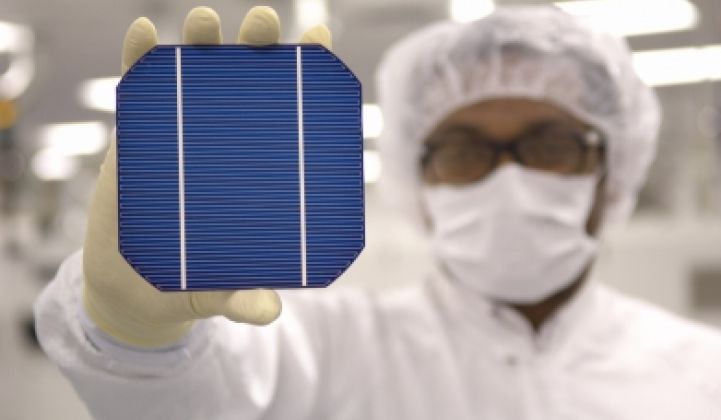Innovalight, a solar start-up based in Sunnyvale California, has been relatively quiet since its founding in 2002. But they just won $18 million in their Round D of venture funding and are starting to be more communicative. I spoke with Conrad Burke, the CEO.
Innovalight has developed a silicon ink -- "perfectly crystalline silicon particles 5nm in size" in an ink-like matrix which Burke claims can boost the efficiencies of crystalline silicon wafers by more than 1%. Burke hinted it could be up to 2%. In a market where a tenth of a percentage point efficiency increase often warrants a press release, a 1% increase is significant. The use of the ink in a production line could conceivably transform a 30 megawatt line into a 35 megawatt line.
A manufacturer would apply Innovalight’s technology to an already existing solar manufacturing operation. "You implement a one-step process, put the ink on the wafer and by doing so the cell comes out at least 1% higher in efficiency," said Burke.
The $18 million brings the total funding for the company to $58 million -- in addition to development funds from the US Department of Energy. In a difficult funding environment, especially for mid and late stage firms, this Round D financing was led by EDB Investments of Singapore along with Vertex Venture Holdings, Apax Partners, ARCH Venture Partners, Convexa Capital, Harris & Harris Group, Sevin Rosen Funds and Triton Ventures.
At one point in the company's history, Innovalight was on the (expensive) path to be a solar cell and solar panel manufacturer. But in late 2008 they changed their business plan to become a manufacturer of the photovoltaic ink -- generating revenue from sales of the ink and licensing income from the incorporation of the process into manufacturing lines. Innovalight's technology allows other crystalline silicon firms to improve the efficiency of their solar cells.
The company is engaged with a number of major c-Si player including JA Solar Holdings. Using existing solar cell manufacturing lines, JA Solar will produce a new type of solar cell using silicon ink technology from Innovalight. Burke predicts it will be on the market this year.
Innovalight claims it has a roadmap to bring conversion efficiencies of photovolatic cells to more than 20% with their silicon ink and processing technologies.
Burke, the CEO, likens the business model to the Coca-Cola syrup business and envisions his company producing gigawatts of the silicon ink.



